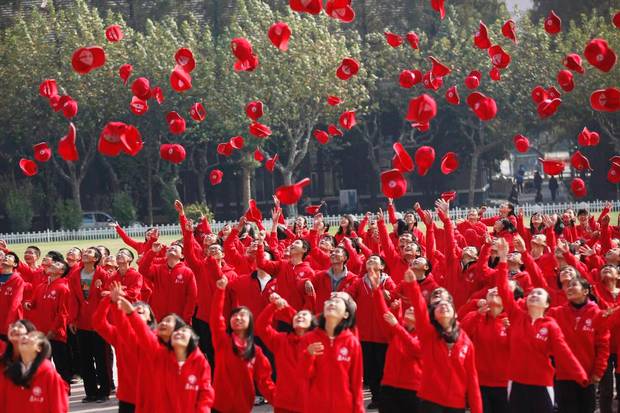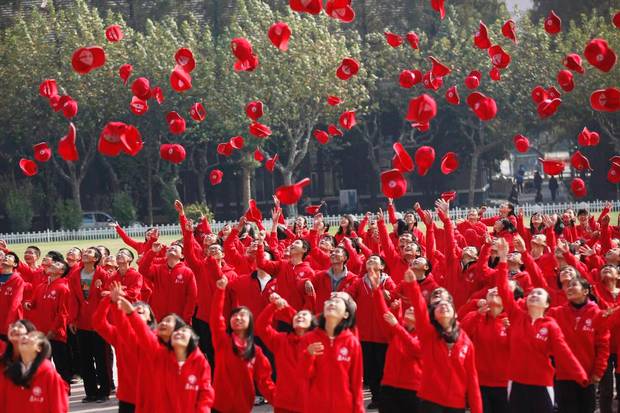
AlexaHR
In an interview with the Chinese business magazine Caijing, Zhou Xiaochuan told about the need for reforms to increase the openness of China's financial sector and raise the yuan's status in the global economy. The statements were made on the eve of the XIX Congress of the Communist Party of China, which opens on October 18. The meeting will appoint leaders of the country for the next five years.
"There is no country in the world that could achieve an open economy with tight currency control. The time window for the reforms is very important, and you need to use a suitable window. If we miss it, the cost of reforms will increase in the future, " the regulator’s head warned. According to him, the country needs a mechanism for exchange of currencies, more market-oriented, with a "reasonable and balanced" rate of the yuan. In addition, China needs to take measures to attract foreign investment and foreign trading partners, as well as to weaken the control of capital movements in order to gradually achieve the free movement of the yuan.
Current reform of the financial sector in China is aimed to tighten supervision by regulators. In particular, this also concerns the control over currency transactions. Verification of financial transactions now takes significantly longer, and it has become more difficult for banks to issue loans under the guise of investments (which does not require capital provision), IMF experts noted in September.
The yuan has been included in the IMF's reserve currency basket since October 2016. However, Swift says that its share in global settlements in August this year was 1.94% compared to a record 2.79% two years earlier.
Meanwhile, Xinhua reports that China's foreign exchange reserves have been growing for the eighth consecutive month, Xinhua reports.
Over the past month, China's foreign exchange reserves have increased by $ 17 billion and have reached $ 3.108 trillion by September 2017. According to the People's Bank of China, such prolonged growth has not been observed since June 2014.
The State Administration of Currency Control names the reason for the increase in foreign exchange reserves economic and financial stability in the country.
Since January this year, the PRC's foreign exchange reserves have increased by $ 98 billion. In the same period, from January to September 2016, their reduction amounted $ 164 billion.
Experts believe that the growth of currency reserves is facilitated by increased state control over the outflow of capital, thanks to which the national currency of the PRC has strengthened as well. At the end of last year, the yuan depreciated by 6.5% against the dollar. Such a fall happened for the first time since 1994. Over the past months, the yuan has managed to grow by 7.5%.
source: xinhuanet.com
"There is no country in the world that could achieve an open economy with tight currency control. The time window for the reforms is very important, and you need to use a suitable window. If we miss it, the cost of reforms will increase in the future, " the regulator’s head warned. According to him, the country needs a mechanism for exchange of currencies, more market-oriented, with a "reasonable and balanced" rate of the yuan. In addition, China needs to take measures to attract foreign investment and foreign trading partners, as well as to weaken the control of capital movements in order to gradually achieve the free movement of the yuan.
Current reform of the financial sector in China is aimed to tighten supervision by regulators. In particular, this also concerns the control over currency transactions. Verification of financial transactions now takes significantly longer, and it has become more difficult for banks to issue loans under the guise of investments (which does not require capital provision), IMF experts noted in September.
The yuan has been included in the IMF's reserve currency basket since October 2016. However, Swift says that its share in global settlements in August this year was 1.94% compared to a record 2.79% two years earlier.
Meanwhile, Xinhua reports that China's foreign exchange reserves have been growing for the eighth consecutive month, Xinhua reports.
Over the past month, China's foreign exchange reserves have increased by $ 17 billion and have reached $ 3.108 trillion by September 2017. According to the People's Bank of China, such prolonged growth has not been observed since June 2014.
The State Administration of Currency Control names the reason for the increase in foreign exchange reserves economic and financial stability in the country.
Since January this year, the PRC's foreign exchange reserves have increased by $ 98 billion. In the same period, from January to September 2016, their reduction amounted $ 164 billion.
Experts believe that the growth of currency reserves is facilitated by increased state control over the outflow of capital, thanks to which the national currency of the PRC has strengthened as well. At the end of last year, the yuan depreciated by 6.5% against the dollar. Such a fall happened for the first time since 1994. Over the past months, the yuan has managed to grow by 7.5%.
source: xinhuanet.com


















